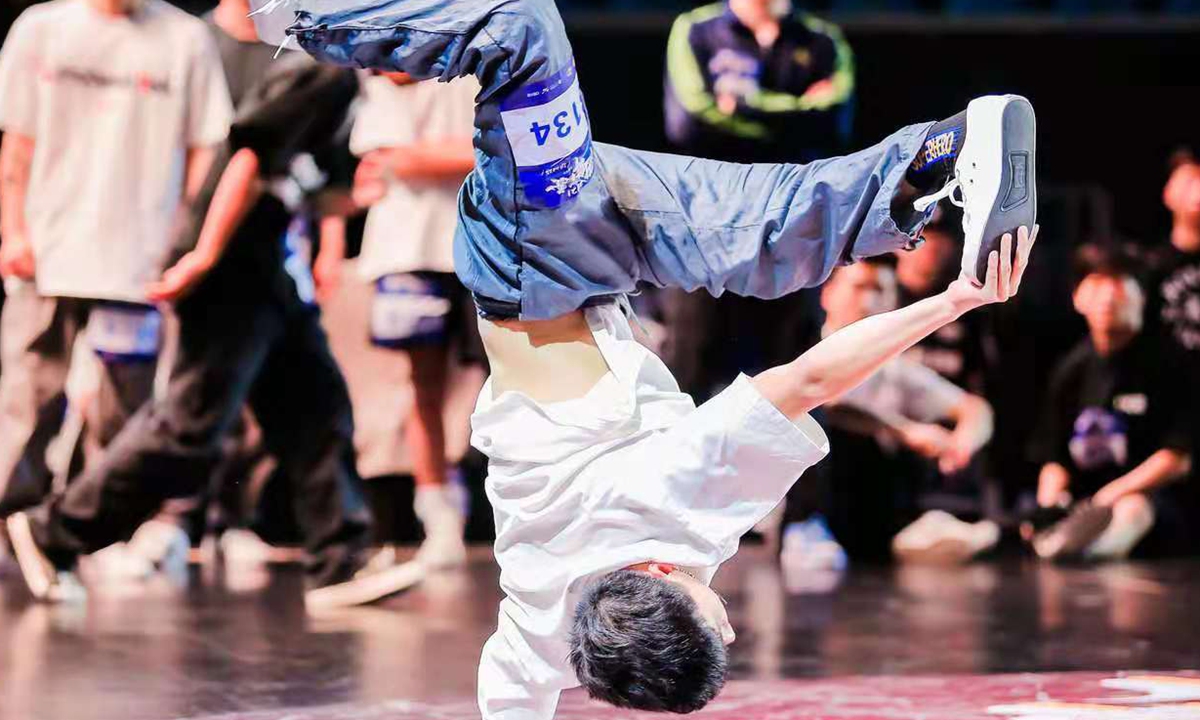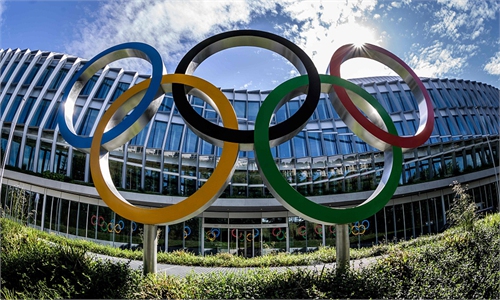SPORT / OLYMPICS
China’s biggest national sporting event includes breakdancing ahead of 2024 Olympic Games

Chinese breakdancer Photo: Sina Weibo
With the introduction of new regulations from China's General Administration of Sport, breakdancing, a form of dance with deep roots in street culture, has been listed as an official competitive sport for the 14th National Games of the People's Republic of China, the country's biggest national sport gala.Adopting the dance style's authentic one-on-one battle format, the general dance category at the National Games will include both men and women's divisions. A total of 16 top athletes - selected from provincial-level delegations, special administrative regions of Hong Kong and Macao - will compete against each other for the gold.
The new move to introduce street dance to the field of sports quickly became a hot topic on Chinese social media, with some reckoning that the decision was made in line with the upcoming Olympic Games, since in 2020, the International Olympic Committee (IOC) officially added breakdancing as a medal event for the 2024 Paris Games under the name "Breaking."
"The National Games are a platform to temper the country's sport newcomers and select prominent talents for the country's Olympic Games strategy. The 2024 Olympic Games will have breakdancing, which was not considered a sport until very recently, so we need a platform to measure the levels of our breakdancers in China," Wang, a sports industry insider, told the Global Times on Tuesday.
While some netizens opined that the "sportification" of the dance style shows that China is in tune with the upcoming Olympic Games, others drew a distinction between breakdancing as an "art" and as a "sport."
"Every B-boy or B-girl has his or her special thing, winning a battle is not the only measure that says whether one is a really good breakdancer. But, I assume that in a battle-oriented competition judges will have certain standards. If a dancer compromises their style to meet these standards, then that's not the dance art," a street dancer who goes by the name Godzilla told the Global Times on Tuesday.
Netizens also pointed out that the popularity of breakdancing, among those who dance and those who like to watch, has been rapidly rising in China because it has appeared in mainstream media productions.
"Even though I once looked down on some entertainers who called themselves "B-boys" but could only do a few power moves, I have to say that TV shows such as Street Dance of China were not only showed Chinese B-boys, because we were always here, but also promoted the culture to a lot of viewers in China," Andy, a breakdancer in Chengdu, Sichuan Province told the Global Times on Tuesday.
"Yes, many of my fellow dancers came to studio to learn breaking or other styles because they saw their idols dancing on the show," Godzilla told the Global Times.
Some netizens pointed out that the spirit of breakdancing was similar to that of traditional sports culture, which could encourage universal audiences.
"Never be afraid of failure," "bravery," "focus" and "being down to earth"… those qualities are what I learned from my B-boy dancer friends. The culture's roots are not from China, but its spirit is shared, and it is now a sporting event, so I do think that some of those qualities can represent the spirit of sports," Marco, a Chinese street dance enthusiast, told the Global Times on Tuesday.
The Chinese and Olympic listings are not the first time that breakdancing has been included in a major competition, it also was added to the 2018 Youth Olympic Games in Buenos Aires.
Breakdancing, a dance form known for its athletic moves and skillful footwork, originated in the 1960s in the US under the influence of athletic forms such as martial arts.



